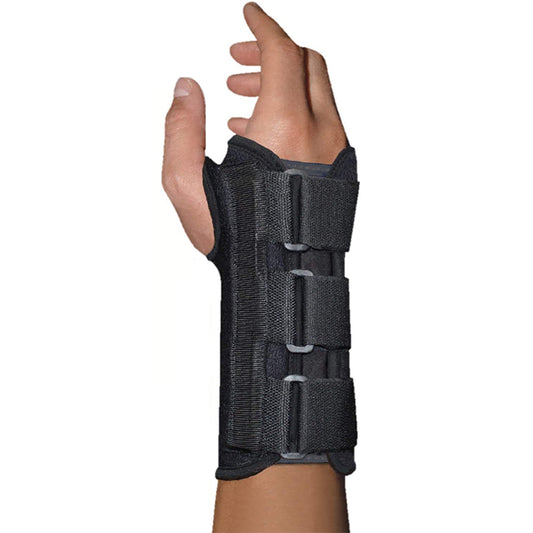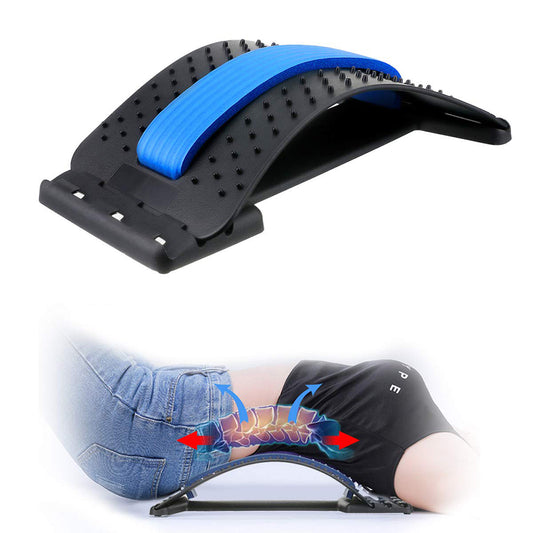
How to Get Carpal Tunnel Pain Relief at Night
Share
Many patients with carpal tunnel syndrome experience pain that becomes apparent at night, which seriously affects sleep quality. This article lists some ways to relieve carpal tunnel pain at night, hoping to help you.
Signs of carpal tunnel at night
Symptoms of carpal tunnel syndrome usually appear first at night and progress into the day. Those who have experienced carpal tunnel describe numbness and pain, especially in the palm, thumb, index and middle fingers. These sensations can become so severe that it becomes difficult to hold small objects in your hands, or even make a fist.
Everyone experiences carpal tunnel syndrome in their own way. It may vary from person to person. Below is a list of the most common nighttime symptoms, some or all of which you may experience.
-
pain, mild to severe
- numbness
- swelling of the hand or fingers
- loss of movement
- tingling in your hands or fingers
- Intensity drops
- Difficulty recognizing heat or cold to touch
- accidentally dropped items
It is important to resolve carpal tunnel symptoms as soon as possible. The median nerve passes through your wrist. Carpal tunnel symptoms occur when the carpal tunnel is pinched or compressed, causing nerve damage. Always discuss medical advice with your doctor about the best treatment option for your situation.

Why does carpal tunnel hurt more at night?
It's not uncommon for carpal tunnel symptoms to start while you're sleeping, and there are two main reasons why carpal tunnel syndrome can get worse at night.
Bend your wrists when you sleep.
Bending the wrist puts more pressure on the median nerve, which can lead to carpal tunnel pain. Ideally, you sleep with your wrists in a neutral position and your hands slightly elevated.
lie down and move minimally
This can cause fluids to build up in your body. If fluid builds up in the wrist, it can compress the median nerve.
How should you sleep with carpal tunnel?
Your sleeping position can greatly affect carpal tunnel syndrome. Taking care of your hands and wrists can go a long way. Here are some simple home remedies to reduce pain and numbness associated with carpal tunnel syndrome:
Avoid bending your arms while sleeping
The median nerve runs the entire length of the arm. Bending your arm for long periods of time can irritate and compress nerves. Choose a sleeping position that allows you to keep your arms straight.
If you have trouble keeping your wrists and arms straight while you sleep, a nighttime wrist splint can keep your wrists in a neutral position. This prevents the wrist from flexing, which can put pressure on their median nerve. A splint designed for nighttime use should be fully adjustable, extending partially under the arm and restricting movement of the hand and wrist. Wrist rests that can be worn on both hands are ideal for people with carpal tunnel syndrome in both hands.

support your arm
Part of the carpal tunnel syndrome process is swelling of the wrist. Supporting your arm with a pillow can help reduce nighttime swelling. Just use a standard bed pillow to support your arms, or you can use a body pillow that can be positioned to support and keep your wrists straight.
keep your hands warm
Warmth causes increased blood flow. Keeping your hands and wrists warm throughout the night encourages more blood flow to your wrists, bringing much-needed nutrients and oxygen to the injured area, extending healing time. There are several ways to keep your hands warm while you sleep. Check them out below:
One of the easiest ways to keep your hands and wrists warm is to wear specially designed compression gloves. These gloves are often worn by people with carpal tunnel syndrome or other conditions such as rheumatoid arthritis. They provide slight compression to the hands and wrists while retaining heat. The gloves are fingerless and don't restrict movement, making them easy to wear day or night.

Room temperature
Keeping a warm room temperature is an easy way to keep your hands warm. Turn up the temperature while you sleep to help keep your hands warm. If you work outside, turn the heat down a bit before you leave to reduce your heating bills.
Avoid sleeping on your side
Side sleeping is associated with carpal tunnel syndrome. People who sleep on their side are more likely to sleep in a fetal position. If you sleep in the fetal position, your shoulders are usually bent forward and your arms and wrists are bent. The pressure of your own body weight on your shoulders and arms combined with a bent arm can lead to pinched nerves.
How to stop carpal tunnel pain at night?
The pain of carpal tunnel syndrome can interfere with your sleep. It is important to start treatment as soon as you feel your symptoms to prevent them from getting worse or waking up. There are many treatment options for carpal tunnel pain at night. Try these symptoms next time to keep you awake at night.
shake hands
Some people report that when they have carpal tunnel, they wake up feeling the need to shake their wrists. Go ahead and shake hands before you go to bed and if you wake up during the night to boost blood flow and move stagnant fluid that builds up in your wrists.
put pressure on the wrist
Wrist pain, numbness, and tingling can be treated with gentle pressure on the wrist. You can wear a splint or compression gloves to provide pressure and prevent nighttime swelling. Applying pressure through self-massage is another way to relieve pain. Combined with raising your hands, pressure is an excellent way to relieve carpal tunnel pain.
Taking OTC anti-inflammatory drugs
Over-the-counter anti-inflammatory drugs such as ibuprofen and naproxen are short-term pain relievers. Many doctors and physical therapists will recommend NSAIDs to help reduce swelling and pain. If you are taking other medicines, please consult your primary doctor before taking a new medicine.
ice
Ice your wrist before bed is an easy, inexpensive way to relieve carpal tunnel. Place an ice pack on the back of your wrist for 10 to 15 minutes to reduce swelling and nerve irritation. Never sleep with an ice pack on any part of your body as it can cause serious skin damage.
appearance
Nighttime management of carpal tunnel pain can be successful if treated early and consistently. There are many inexpensive options that can be done in the comfort of your own home, icing, splinting, over-the-counter medications, wrist positioning, and more. If your carpal tunnel is getting worse or not getting better, seek professional help from your doctor. Carpal tunnel syndrome is a serious condition that can cause long-term damage if you don't treat it promptly and properly.










